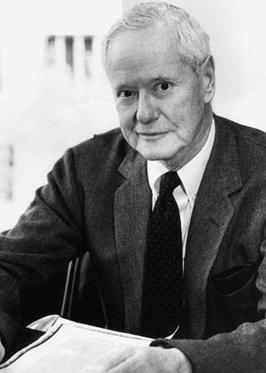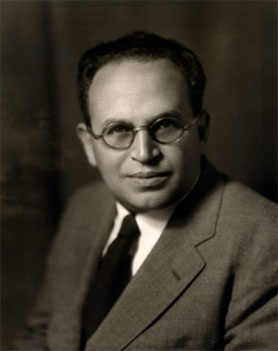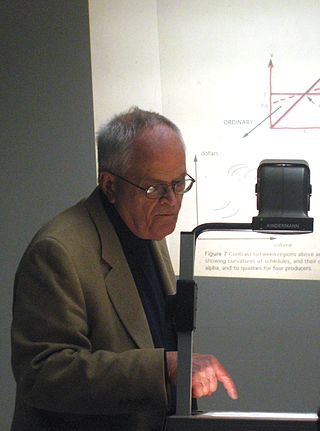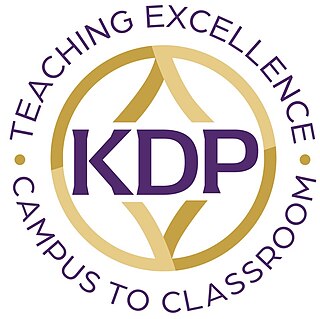Related Research Articles

Robert King Merton was an American sociologist who is considered a founding father of modern sociology, and a major contributor to the subfield of criminology. He served as the 47th president of the American Sociological Association. He spent most of his career teaching at Columbia University, where he attained the rank of University Professor. In 1994 he was awarded the National Medal of Science for his contributions to the field and for having founded the sociology of science.
William Julius Wilson is an American sociologist, a professor at Harvard University, and an author of works on urban sociology, race, and class issues. Laureate of the National Medal of Science, he served as the 80th President of the American Sociological Association, was a member of numerous national boards and commissions. He identified the importance of neighborhood effects and demonstrated how limited employment opportunities and weakened institutional resources exacerbated poverty within American inner-city neighborhoods.

The American Ornithological Society (AOS) is an ornithological organization based in the United States. The society was formed in October 2016 by the merger of the American Ornithologists' Union (AOU) and the Cooper Ornithological Society. Its members are primarily professional ornithologists, although membership is open to anyone with an interest in birds. The society publishes the two scholarly journals, Ornithology and Ornithological Applications as well as the AOS Checklist of North American Birds. The American Ornithological Society claims the authority to establish standardized English bird names throughout North and South Americas.

Paul Felix Lazarsfeld was an Austrian-American sociologist and mathematician. The founder of Columbia University's Bureau of Applied Social Research, he exerted influence over the techniques and the organization of social research. "It is not so much that he was an American sociologist," one colleague said of him after his death, "as it was that he determined what American sociology would be." Lazarsfeld said that his goal was "to produce Paul Lazarsfelds". He was a founding figure in 20th-century empirical sociology.

James Samuel Coleman was an American sociologist, theorist, and empirical researcher, based chiefly at the University of Chicago.
The American Sociological Association (ASA) is a non-profit organization dedicated to advancing the discipline and profession of sociology. Founded in December 1905 as the American Sociological Society at Johns Hopkins University by a group of fifty people, the first president of the association would be Lester Frank Ward. Today, most of its members work in academia, while around 20 percent of them work in government, business, or non-profit organizations.
Alpha Kappa Delta (ΑΚΔ) is an international honor society of sociology. It is a non-secret, democratic organization founded in 1920 by Emory S. Bogardus. It has over 106,000 members across more than 630 chapters worldwide.
The Pacific Sociological Association (PSA) is a professional association of sociologists in the Pacific region of North America. The PSA is best known for its annual conference and academic journal Sociological Perspectives.

The International Sociological Association (ISA) is a non-profit organization dedicated to scientific purposes in the field of sociology and social sciences. It is an international sociological body, gathering both individuals and national sociological organizations. The ISA was founded in 1949 under UNESCO and it has about 6,000 individual and 45 collective members, hailing from 167 countries. Its sole purpose is to "represent sociologists everywhere, regardless of their school of thought, scientific approaches or ideological opinion" and its objective is to "advance sociological knowledge throughout the world". Along with the Institut International de Sociologie (IIS), it is seen as a world-leading international sociological organization.

Harrison Colyar White was an American sociologist who was the Giddings Professor of Sociology at Columbia University. White played an influential role in the “Harvard Revolution” in social networks and the New York School of relational sociology. He is credited with the development of a number of mathematical models of social structure including vacancy chains and blockmodels. He has been a leader of a revolution in sociology that is still in process, using models of social structure that are based on patterns of relations instead of the attributes and attitudes of individuals.
Everett Verner Stonequist was an American Sociologist perhaps best known for his 1937 book, The Marginal Man
"The marginal person is poised in the psychological uncertainty between two social worlds; reflecting in his soul the discords and harmonies, repulsions and attractions of these worlds...within which membership is implicitly if not explicitly based upon birth or ancestry...and where exclusion removes the individual from a system of group relations."

Kappa Delta Pi Honor Society in Education (KDP) was founded in 1911. KDP was one of the first discipline-specific honor societies. Its membership is limited to the top twenty percent of those entering the field of education.
The Society for Developmental Biology (SDB), originally the Society for the Study of Development and Growth, is an organization for scientists and professionals around the world whose research is focused on the study of the developmental biology, embryology, and related disciplines.
Association for Israel Studies (AIS) is an international, interdisciplinary scholarly society devoted to the academic and professional study of modern Israel.
The Rural Sociological Society (RSS) is a professional social science association that promotes the generation, application, and dissemination of sociological knowledge. The RSS seeks to enhance the quality of rural life, communities, and the environment. It was officially established on December 29, 1937, in order to promote the development of rural sociology through teaching, research and extension. Membership in the RSS includes persons professionally employed in the field of rural sociology, or those interested in the objectives of the Society. The RSS holds meetings in different locations every year.

The International Society for Traumatic Stress Studies is a professional association established on March 2, 1985, in Washington, D.C. It aims to disseminate the state of the science as it pertains to the effects of trauma.

The sociology of Jewry involves the application of sociological theory and method to the study of the Jewish people and the Jewish religion. Sociologists are concerned with the social patterns within Jewish groups and communities; American Jewry, Israeli Jews and Jewish life in the diaspora. Sociological studies of the Jewish religion include religious membership, ritual and denominational patterns. Notable journals include Jewish Social Studies, The Jewish Journal of Sociology and Contemporary Jewry.
Omar Lizardo is an American sociologist who is LeRoy Neiman Term Chair Professor of Sociology at the University of California, Los Angeles. He was previously professor of sociology at the University of Notre Dame (2006–2018), and co-editor of the American Sociological Review. In 2020, Lizardo became a member of the board of reviewing editors of the journal Science. He has also served on the editorial board of the journals Social Forces, Sociological Forum, Poetics, Journal for the Theory of Social Behaviour, Theory and Society, Sociological Theory, and Journal of World-Systems Research.
Cynthia Fuchs Epstein is an American sociologist and emeritus distinguished professor of sociology at the Graduate Center of the City University of New York. Fuchs Epstein served as president of the American Sociological Association in 2006.
Rose Laub Coser was a German-American sociologist, educator, and social justice activist. She taught sociology at the State University of New York at Stony Brook from 1968 until her retirement in 1987. She was interested in the effect of social structures on individuals, and much her work fell within medical sociology, role theory, and sociology of the family.